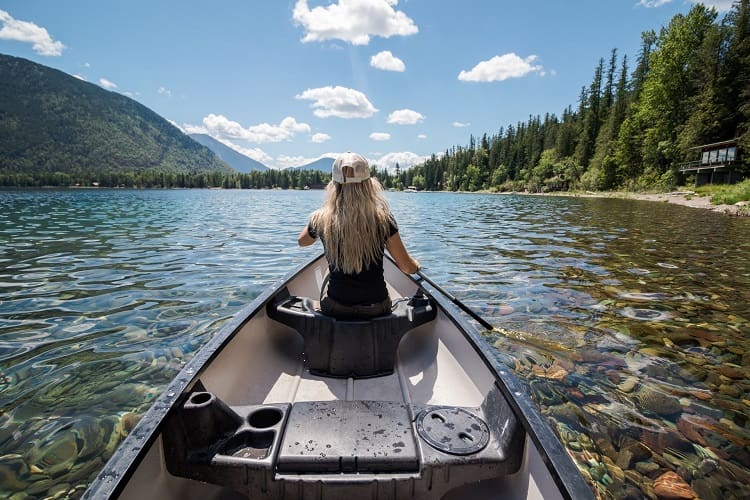With COVID-19 vaccines becoming more widely available and pandemic-related restrictions easing more each day, many people are busy making summer travel plans. A vacation can be a chance to make special memories with loved ones, but you don’t want to put your sobriety and the progress you’ve made in your recovery journey at risk.
Set Firm Boundaries
Even though you’re not obligated to share your recovery journey with others, it’s a good idea to make sure the people you’re traveling with understand that you need to make maintaining your sobriety a top priority at all times. This means avoiding nightclubs or other locations where drinking or substance use is common and being willing to leave a situation that becomes unexpectedly risky.
There’s absolutely no reason to feel guilty about taking precautions to ensure that your trip doesn’t put your sobriety in jeopardy. People who don’t respect your boundaries don’t have your best interests at heart—and could potentially be dealing with substance abuse issues of their own. In your quest for self-improvement, you must be your own advocate.
Keep Yourself Accountable
Staying connected to your sober support network can help you avoid temptation and cope with cravings while you’re in an unfamiliar environment. If you have a sponsor, discuss your travel plans and make arrangements to check in periodically. It’s also a good idea to locate meetings that will be held near your destination. Here are some links that can help:
- Find an AA Meeting Near You
- SMART Recovery Meeting Locator
- NA Meeting Directory
If you’re having trouble locating resources on your own, SAMHSA’s free and confidential national helpline at 1-800-662-HELP (4357) is available 24/7 to connect callers with local assistance and support.
Watch What You Eat
While trying new restaurants or local delicacies is often a highlight of the travel experience, you want to be careful to avoid overindulging. What you eat affects how you feel, and consuming too much sugar, salt, and fat is going to leave you feeling sluggish and irritable. This will make it harder to keep up with your recovery goals.
To indulge responsibly, split a dish with a friend. Then, plan the rest of your day’s meals to include lean protein, whole grains, and plenty of fresh fruits and vegetables. Don’t forget to stay hydrated as well.
If you have activities planned where you’ll be out and about for most of the day, bring trail mix, protein bars, or other easy-to-pack snacks with you so you’re not tempted to stop for fast food. Save your dietary splurges for treats that will be the most meaningful to you.
Stay Active
Exercise is a great stress reliever, so try to stay as active as possible during your trip. If you find yourself with a little downtime, sneak in a workout at the hotel fitness center or take a dip in the pool instead of flipping through the TV channels alone in your room. Park your car a bit further from your destination so you can sneak in a few extra steps, or consider scheduling a walking tour of a popular local attraction. If you’re visiting family, remember that any time spent playing with young children is sure to get your heart pumping.
While you should aim for 20-30 minutes of exercise each day, keep in mind that you don’t need to do this all at once. Two or three shorter bursts of activity can still provide the mood-boosting benefits you need to stay on track with your recovery.
Make Time for Sufficient Sleep
Sleep difficulties are fairly common in the early stages of recovery, and a disruption in your routine can make it even more difficult to get the rest your body needs. However, bringing a favorite pillow, an eye mask, earplugs, and/or a white noise machine from home might make it easier to unwind. Giving yourself some time to relax before bed by reading a favorite book, writing in your journal, listening to soothing music, or doing a short yoga routine can also be helpful.
If you’re tired during the day, a power nap can give you an added boost of energy. A 30-minute mid-day nap will leave you feeling refreshed and ready to enjoy an evening of socializing.
Don’t Be Too Hard on Yourself – Sobriety Isn’t Always a Straight Line
While you should certainly take all reasonable precautions to maintain your sobriety, it’s important to realize that one moment of poor judgment doesn’t mean that your recovery efforts are doomed. A single unplanned use of drugs or alcohol is a slip, while a relapse refers to repeated use that is accompanied by a rejection of your recovery efforts.
If you slip while you’re on vacation, you can get back on track by reaching out to your support system. Some aspects of your treatment plan may need to be adjusted, but it’s normal for the recovery process to involve a certain amount of trial and error.
Anabranch Recovery Center, in Terre Haute, Indiana, can help you and your family find and maintain lasting recovery. Contact us today to learn more about our programs.




